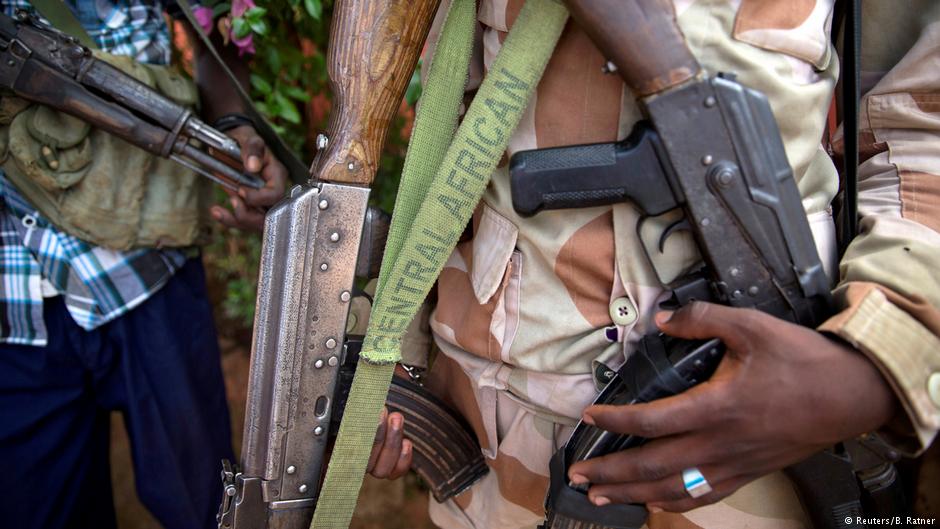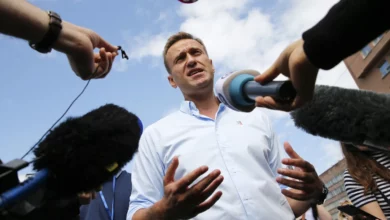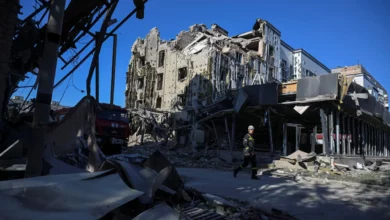
The murder of three Russian journalists working in the Central African Republic has raised questions about Moscow’s role in the country’s ongoing war. DW spoke to expert Tim Glawion about Russia’s presence in the region.
DW: Russia recently began providing the Central African Republic (CAR) with weapons and is likely seeking access to natural resources in return. Are there signs of Russian involvement in CAR?
Tim Glawion: That depends on where one is. There are some signs in the capital. For instance, the street in front of the Russian Embassy was repaved a few months ago before a high-ranking Russian official arrived. People are also talking about Russia, even in the media, which is something that was quite rare in the past.
If you want to see more you have to leave the capital and head out towards Berengo. Russian military advisors have set up camp there. They are attempting to train the Central African army on how to use Russian weapons, as well as imparting strategic advice. Generally, the Central African people look favorably upon the situation. The Russian government was the first that was willing to deliver weapons and to actively and quickly train the army. Although the European Union has had a similar approach for years, cooperation has been slow due to restrictions over providing weapons, training, strategic advice, etc.
What is known about the Russians there beyond the fact that they have set up camp in Berengo?
Locals were quite happy initially. Nevertheless, the Russian presence has also raised a lot of questions: Namely, who exactly are these men and what do they want here? One illustration of that type of situation was a cellphone video that aired as part of a documentary film recently broadcast on France 24. The video was shot by a rebel in the north of the country. One sees Russian military advisors driving a convoy through a rebel-held area in order to meet rebel leaders and give them gifts as a sign of goodwill. But the rebels set upon them immediately. They were not satisfied with the gifts alone, they wanted everything the Russians had, including weapons intended for the CAR government. Not everyone in Central Africa appreciates Russia’s presence. And the longer Russia stays, the more controversial its presence will become.
A former Central African defense minister recently complained to DW about foreign meddling in the country. He claimed that the presence of French and Russian forces was only creating more conflicts. Is violence on the rise?
First of all, one has to recognize that a major political power struggle is taking place here in the capital. There are a great many people who would like to take over the presidency or other high-level government posts. For that reason, anything that seems to benefit the president is immediately opposed by all those who are against him. Of course, that goes for those ministers and politicians who were fired by the president and no longer have a role to play in government. A lot of rumors are being spread about what the Russians are doing here. Naturally, that means they are becoming part of the conflict.
Perhaps the Russian government had hoped it could play a more neutral role in CAR and maximize its profits — maybe with economic treaties — without much friction. Now they are certainly beginning to realize that this is not the case. And that one cannot simply march into a place like the Central African Republic — where so many different groups are operating — build up an army and sign a few contracts. It’s not that easy. Unfortunately, Russian civilians have now gotten caught in the crossfire.
We will have to wait and see if Russian arms deliveries and Russian intervention escalate the conflict. But it is clear that Russia is another factor, another actor getting involved in the conflict. If the Russians thought they could come in and toy with the conflicting parties they were sorely mistaken. Quite the opposite has become the case. Now, opposing parties are using the Russians as a toy in the conflict gripping the country.
The three Russian investigative journalists who were killed on Monday were a long way away from the capital, Bangui. Who controls the region where they were murdered? Was it reckless for them to go there without armed security personnel?
There are very few regions in the country that are clearly under the control of one group or another. Control of the area where the Russian journalists were is contested by a number of groups. Thus the rumor mill is spinning wildly. And rumors play a big role. If a group thinks the Russians are there to fight them or to deliver weapons to an enemy, a group is much more likely to simply attack. In my opinion, the men were not killed because they were journalists but rather because they were mistakenly seen as part of a Russian intervention unit. I think the attack was aimed at Russia, not necessarily at the free press.
Tim Glawion is a research associate at the German Institute of Global and Area Studies (GIGA). He was in the Central African Republic at the time this interview was conducted.




